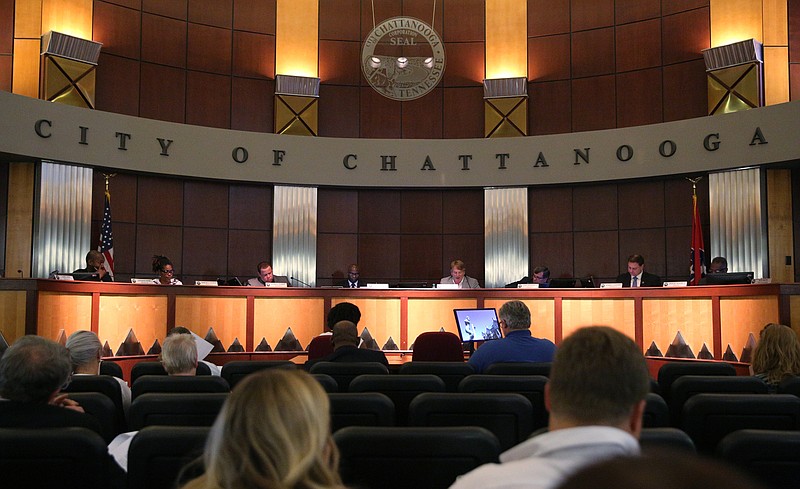One would think we the people would be hard to forget in doing the people's business, but Tennessee Gov. Bill Lee made sure we aren't forgotten with an executive order Friday ordering governmental bodies to "make reasonable efforts" to allow the public access to meetings held electronically in wake of the coronavirus outbreak.
The state legislature dealt with the matter briefly in its haste to approve a budget before recessing until June 1, but the state House and Senate could not come to an agreement.
So Lee, who in his 2018 run for office advocated for open government, stepped in.
His order both allows electronic meetings to be used to carry out the "essential functions" of government but also directs that the governments provide notices of the meeting agendas and how the public might access the meetings.
One might think that it's unnecessary to put in such measures, but we believe access of people to government always should be uppermost in the minds of those who conduct it.
Some governments - the city of Chattanooga and Hamilton County, for instance - already electronically post the agendas for their upcoming meetings. That gives people time to decide whether they want to attend and/or take up any matter that might deal with something on the meeting agenda.
Those that don't should move swiftly to do so and, as suggested by Deborah Fisher, executive director of the Tennessee Coalition for Open Government, allow members of the public with experience in such electronic connections to volunteer to help them.
Lee's executive order covers all governing bodies in the state, from the smallest to the largest, the most rural to the most urban. That's not just city councils and county commissions but school boards, boards of aldermen, state boards and commissions, public health boards, election commissions, public utilities, parks boards and the like.
The governor's order allowing electronic meetings, which expires May 18, acknowledges that governing bodies must continue to carry out "essential functions, including, but not limited to, considering annual budgets or special budgetary items in response to COVID-19 or measures providing regulatory flexibility or other means to treat and contain COVID-19 ... "
Non-essential matters can wait for what we hope is the end of the outbreak sooner rather than later.
Citizens in such an unprecedented time should know what actions their governments are taking and consider what part in them they might play.
We appreciate the Tennessee Coalition for Open Government for pushing for this openness and Gov. Lee for recognizing the importance of it. Now it's up to local governments to follow through.
